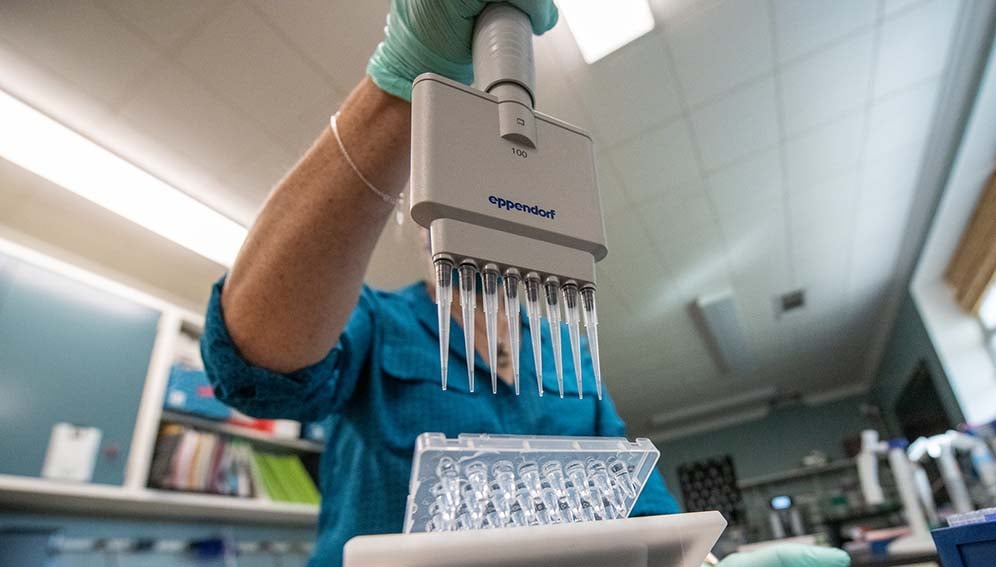16/10/25
Mexico’s scientists urge rules on gene-edited crops

By: Aleida Rueda
Send to a friend
The details you provide on this page will not be used to send unsolicited email, and will not be sold to a 3rd party. See privacy policy.
[MEXICO CITY, SciDev.Net] Researchers in Mexico are urging the government to develop clear regulations that distinguish gene-editing technologies, such as CRISPR, from genetically modified organisms (GMOs) — a distinction already made in most Latin American countries.
Mexico, along with Bolivia, Venezuela, and Peru, remains one of the few countries in the region without a legal framework for gene editing in agriculture. By contrast, Argentina and Chile introduced pioneering regulations in 2015 and 2017, respectively.
To address this gap, 28 researchers from various Mexican institutions have issued a public statement and a petition on Change.org, calling for evidence-based regulation to enable the use of gene editing to improve crop traits such as nutritional value and drought tolerance.
“We are concerned that if this technology remains restricted in Mexico, other countries will develop improved crops that we will later have to import,” said Luis José Delaye Arredondo, director of the Advanced Genomics Unit at the Center for Research and Advanced Studies, and one of the statement’s signatories.
Their call comes after Mexican President Claudia Sheinbaum signed a decree in March banning the cultivation of genetically modified maize, or corn.
The decree states that maize production in Mexico “must be free of genetic modifications produced with techniques that overcome natural barriers to reproduction or recombination [the process of breaking and reforming DNA to create new gene variants], such as transgenic [genetically modified] crops”.
Although the decree specifically targets maize, researchers fear it could be interpreted to cover other crops and techniques, including gene editing tools such as CRISPR-Cas, which allow precise modifications to an organism’s DNA without necessarily introducing foreign genes.
“Differentiated regulation of gene editing doesn’t mean opening it up indiscriminately,” said Alejandra Quadrana, a postdoctoral researcher at the National Autonomous University of Mexico’s Institute of Social Research. “It’s about monitoring innovation processes and making sovereign decisions about them.”
What is CRISPR-Cas?
CRISPR-Cas is a genome-editing system that enables scientists to make targeted changes to DNA — cutting, silencing, or modifying specific genes. It has broad applications in medicine, agriculture, and biotechnology.
Agustín López-Herrera, an agricultural engineer at the Autonomous University of Chapingo, Mexico, who was not involved in the petition, said the government’s current stance implies that every new biotechnology is being judged to be harmful, making regulation both “urgent and appropriate”.
Delaye says one of the main challenges is that “everything ends up being lumped together as GMOs”.
“Precision genetic editing doesn’t necessarily involve GMOs and therefore deserves its own regulation,” he said.
Gene editing, he explained, involves targeted, controlled changes to an organism’s DNA sequence to alter gene function. Unlike genetic modification, it does not necessarily introduce genetic material from another species.
What those calling for regulation argue is that the result of applying this editing technique is no different from the result of a natural mutation — “except that with this technology, the properties of a crop can be changed with greater precision,” Delaye explained.
However, not all scientists agree. Alma Piñeyro, a molecular genetics specialist at the Autonomous Metropolitan University, Mexico, cautioned that these technologies carry inherent risks.
“Natural selection doesn’t have directionality, but these techniques do,” she said. “They typically affect genes with complex genetic characteristics, so their unexpected effects can be magnified.”
Piñeyro added that assuming gene-edited plants are equivalent to natural mutations is “simplistic”.
“When they leave the controlled environment of the laboratory, the interactions of gene-edited plants are going to be much more complex than we can anticipate. That requires a multidisciplinary analysis,” she said.
Lessons from Latin America
Argentina was the first country in the world to adopt specific gene editing regulations for plant breeding. Its system evaluates products on a case-by-case basis to determine whether they meet the criteria for GMOs. If not, they are treated as conventional products.
This is the approach that has been applied in most countries.
In Chile, if the regulatory authority determines that the product does not contain DNA from another organism, it is also considered a normal product.
“There are no biosecurity measures to be applied, no monitoring, no traceability, no labelling, nothing to be done. It’s common and is treated as such,” said Miguel Sánchez, a doctor in biological sciences and executive director of ChileBio, an association of agricultural biotechnology companies.
Sánchez added that genetic editing reduces the time and costs of developing new crop varieties to help us adapt to climate challenges and strengthen food security. “And Mexico is currently missing out.”
A broader debate
While many researchers see the lack of regulation in Mexico as a barrier to innovation, others argue that the discussion must go beyond the scientific and technical aspects.
“We’re late to the public debate on genome editing,” said Piñeyro.
“But we must learn from the debate on GMOs in recent decades and understand that the use of new technologies cannot be restricted solely to a technical and scientific discussion of how the technology works, but requires a broader debate that responds to the needs of Mexican agriculture.”
She warned against what she called “techno-optimism”.
“Not all problems can be solved solely with technology,” she added. “Many are social or economic — related to wealth distribution or market access — and biotechnology alone won’t fix them.”
Quadrana believes that new regulations could bring together these opposing views.
For her, technologies are not inherently good or bad — it depends on how they’re used, in what context, and with whose interests.
“This statement is a way to begin putting this issue on the table for debate,” she added.
“It’s a good opportunity to compare different opinions, build consensus, discuss ideas, and for this to be translated into regulation. That would be ideal.”
This article was produced by SciDev.Net’s Latin America and Caribbean desk.

